Training
NAWOJ, Norwegian Journalists Hold Workshop on Gender Equality and Sensitive Reporting in Gombe
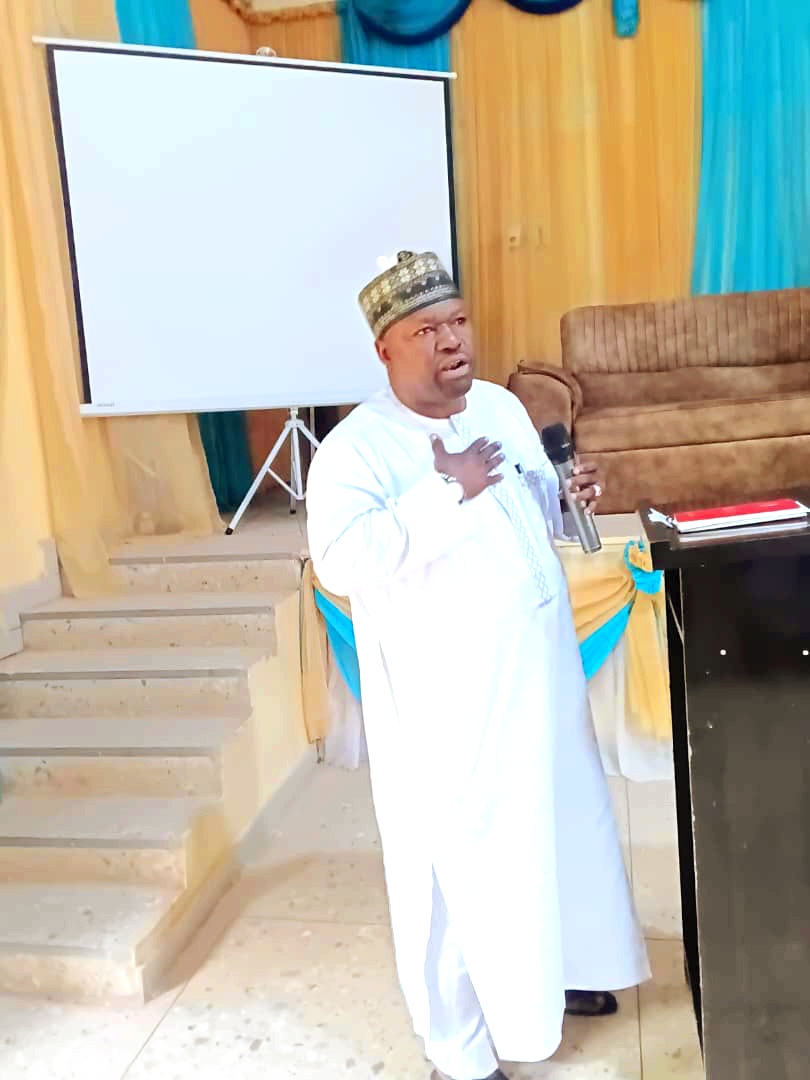
By Nuhu Waziri
The Nigeria Association of Women Journalists (NAWOJ), in collaboration with a delegation of Norwegian journalists, has commenced a three-day training workshop in Gombe State aimed at promoting gender equality, safety, and gender-sensitive reporting.
Speaking at the opening ceremony, the Gombe State Commissioner for Women Affairs, Asma’u Muhammad Iganus, commended journalists across the state for their commitment to advancing gender-based initiatives that address the challenges facing women.
Represented by the Acting Assistant Director, Women Affairs, Mrs. Yoda Obida, the Commissioner reaffirmed the Ministry’s readiness to partner with NAWOJ in achieving gender equity and enhancing sensitivity in media reporting.
Also addressing participants, the General Manager of Radio Nigeria Jewel FM Gombe, Dr. Garba Ubale Danbatta, urged NAWOJ leadership to intensify its campaigns on gender equality and safety.
He emphasized that such efforts are vital in dismantling the barriers preventing women from attaining leadership and political positions.
Dr. Danbatta also called on the association to actively mentor younger journalists to ensure the sustainability of gender advocacy and to improve the representation and integrity of women in journalism both within Gombe State and nationwide.
In her welcome address, the Chairperson of NAWOJ, Gombe State Council, Bome Anron Samutar, encouraged women journalists to remain proactive in protecting and promoting women’s rights and integrity through impactful and ethical reporting.
Delivering a goodwill message, the Chairman of the Nigeria Union of Journalists (NUJ), Gombe State Council, Comrade Faruq Muazu Gombe, praised NAWOJ for initiating what he described as a timely and commendable programme.
Represented by the Union’s Secretary, Comrade Shuaibu Umar, Comrade Faruq highlighted the persistence of systemic barriers that hinder women’s full participation in politics, leadership, and access to equal opportunities.
He stressed that equipping journalists with proper training on gender-sensitive reporting will not only lead to responsible journalism but also foster positive societal change.
Comrade Faruq also revealed that NUJ Gombe is planning a broader capacity-building programme aimed at enhancing the professionalism and ethical standards of journalists in the state.
Training
INEC Gombe Kicks Off Monthly Staff Training to Boost 2027 Election Preparedness
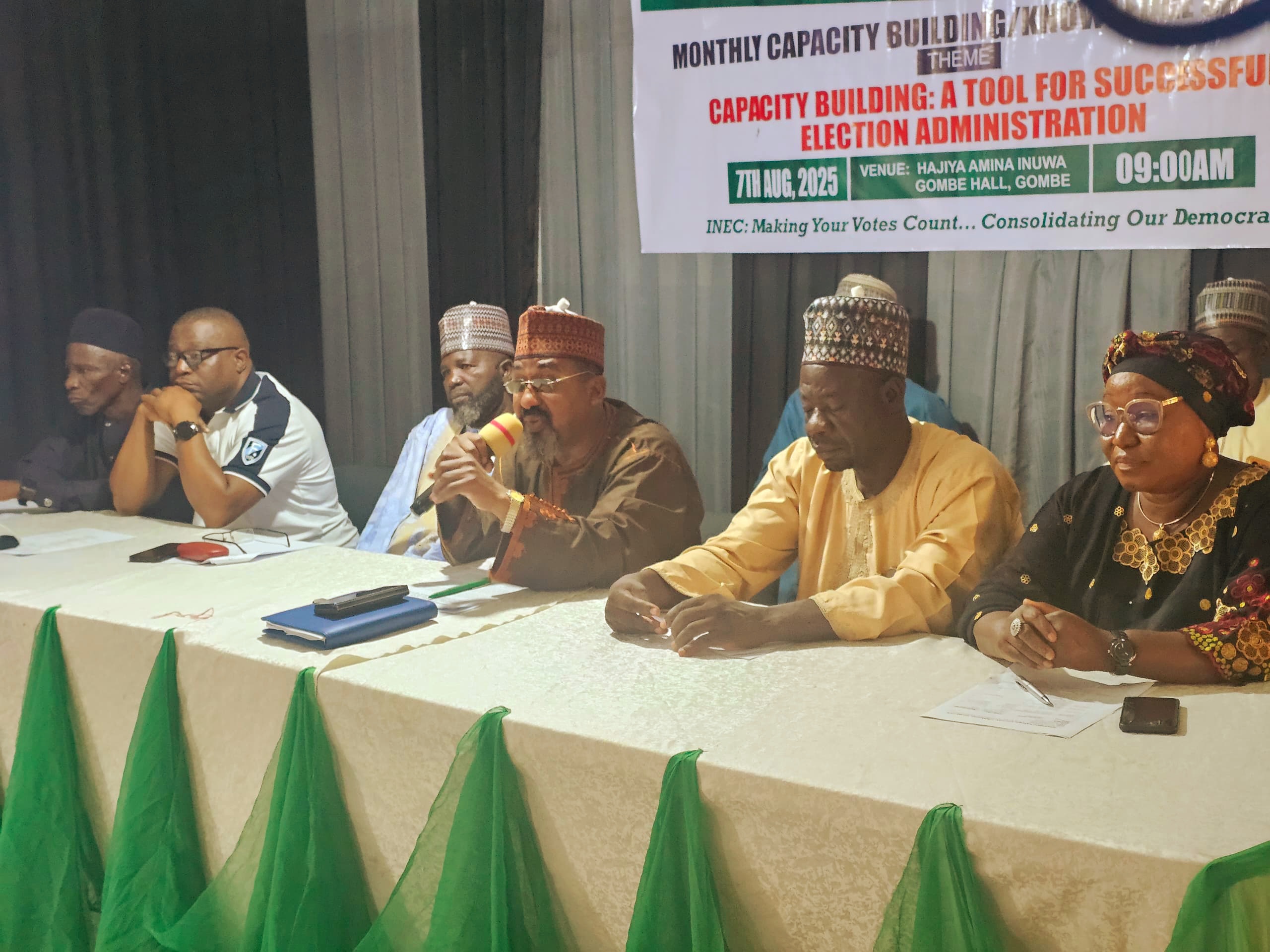
By Our Correspondent
The Independent National Electoral Commission (INEC) in Gombe State has commenced a sustained capacity-building programme for its staff, aimed at strengthening election administration in preparation for the Continuous Voter Registration (CVR) exercise and the 2027 General Elections.
Speaking at a one-day workshop held on Thursday, August 7, 2025, at the Hajiya Amina Inuwa Gombe Women Development Centre, the Resident Electoral Commissioner (REC), Dr. Sa’ad Umar Idris, reaffirmed the Commission’s commitment to continuous staff training as a strategic response to evolving challenges, emerging technologies, and changing legal frameworks in Nigeria’s electoral process.
The workshop, themed “Capacity Building: A Tool for Successful Election Administration”, brought together staff of the INEC State Office in Gombe for intensive knowledge-sharing sessions.
Dr. Idris described the initiative as “not just an administrative formality but a deliberate and indispensable investment in the integrity of our electoral process and the vibrancy of our democracy.” He stressed that capacity building remains central to enhancing efficiency, transparency, and credibility in elections.
“In preparing for the CVR and the 2027 elections, we must equip our staff with the knowledge, tools, and confidence to deliver on the Commission’s mandate,” he said.
The lead presentation by Dr. Idris highlighted the challenges, opportunities, and strategies for strengthening staff competencies. This was followed by a plenary session where participants discussed innovative ways to improve electoral processes.
Head of VR/ICT in the state, Engr. Bitson Filibus, also delivered a technical briefing on the upcoming CVR, offering insights into its operational and technological requirements.
It will be recalled that Dr. Idris, upon assuming office in June 2025, pledged to institutionalise monthly capacity-building and knowledge-sharing programmes. Thursday’s session marks the first in the series, with future editions expected to include field officers, security agencies, and other critical stakeholders.
“With the elections drawing nearer, the professionalism of our personnel will remain the bedrock of public trust in the electoral process,” Dr. Idris added.
Training
1,000 Gombe Housewives Trained by ‘SHALELE CE’ In Online Digital Skills And Empowerment Opportunities
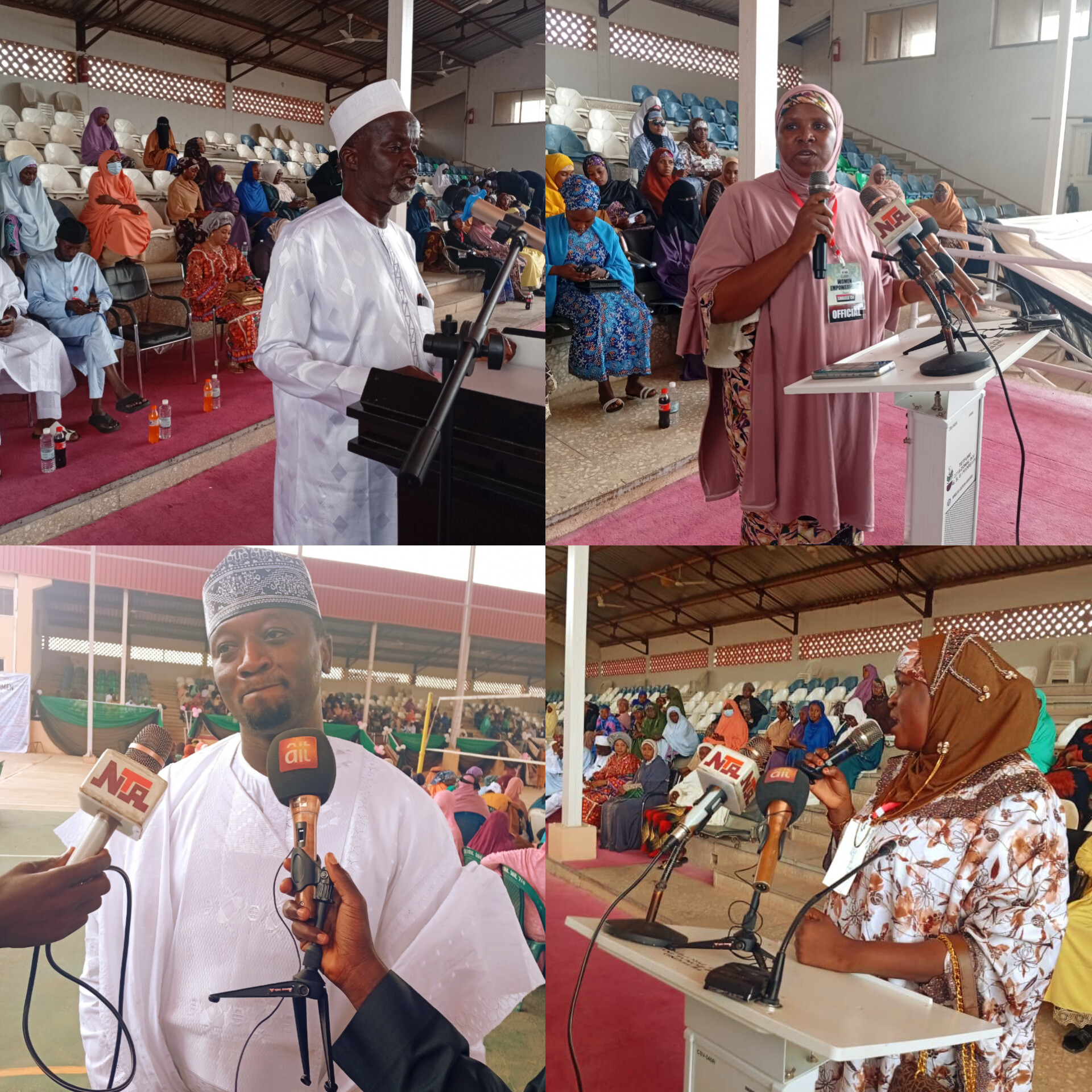
By Our Correspondent
In a major push to promote entrepreneurship and economic self-reliance among women, a private firm, Shalele Ce Enterprises, has launched a training programme for 1,000 housewives in Gombe State on online business development.
The sensitisation programme, which kicked off at Gombe State University (GSU) on Sunday, aims to equip housewives with practical digital skills to help them start and manage businesses from the comfort of their homes.
Speaking at the opening ceremony, the Chief Executive Officer of Shalele Ce Enterprises, Maryam Ibrahim Jalo, said the initiative is designed to empower women with knowledge in digital marketing, online advertising, and product promotion.
“By enabling women to manage their businesses without leaving their homes, we aim to reduce marital conflicts and promote harmony within families,” she explained.
Jalo added that the programme is part of the company’s wider commitment to fostering inclusive economic growth through the empowerment of women.
The event drew support from government and business stakeholders. The Director of Publicity, Gombe State Chamber of Commerce, Yusuf Haruna, commended the initiative, noting that women entrepreneurs play a vital role in Nigeria’s economic development.
Also speaking on behalf of Governor Muhammadu Inuwa Yahaya, the Senior Special Adviser on Small and Medium Enterprises, Alhaji Abdulwahab Sabo, applauded the organisers and reaffirmed the state government’s readiness to support such programmes.
“The government is proud of this initiative and will ensure its integration into our broader plans for youth and women empowerment,” he stated.
One of the participants, Juwairiyyat Mohammed, expressed excitement over the programme, describing it as timely and impactful.
“This training is ideal for housewives like me. It allows us to balance our domestic duties with business opportunities online,” she said.
The event featured lectures from several business executives and digital experts from across the state who shared their experiences and insights with the participants.
Training
ITFA Trains Over 50 MSMEs In Northeast For Global Market Access
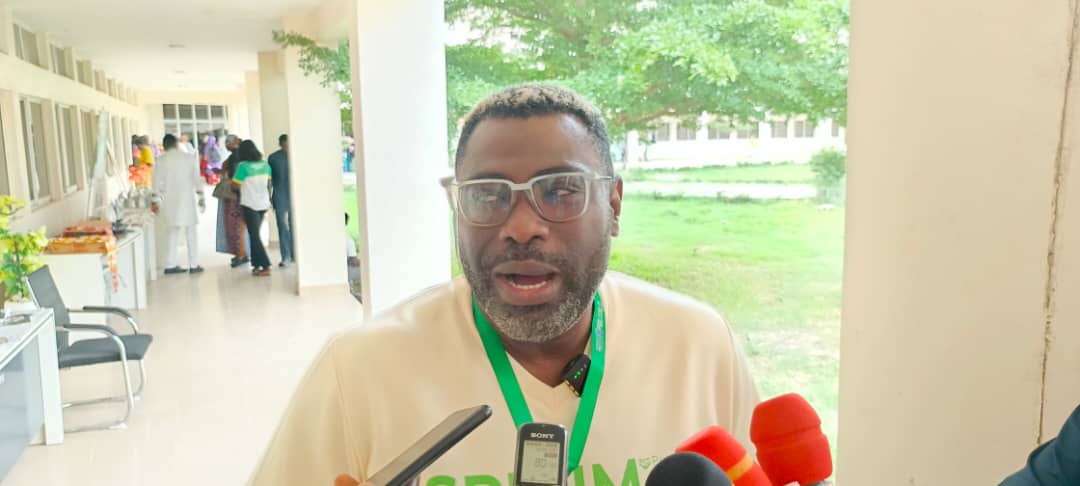
By Khalid Idris Doya
The International Trade Facilitators Association (ITFA), in collaboration with the United Nations Development Programme (UNDP), has trained over 50 Micro, Small, and Medium Enterprises (MSMEs) in the Northeast zone on right structures, knowledge, and frameworks to align with financing and international standards to enable them scale their businesses and access global markets.
The training under the “Sustainability Coaching Program for Nature-Positive MSMEs in Nigeria (SPENM)” held at the SPESSE Centre of Abubakar Tafawa Balewa University (ATBU) in Bauchi on Wednesday.
Speaking during the opening ceremony, Dr. Abel Owotemu, Technical Advisor and Business Coach with ITFA, said the core program on Business Model Canvas, a globally recognized tool for analyzing and strengthening business value chains.
He said: “We are empowering MSMEs across Nigeria in partnership with the Global Environment Facility (GEF) Small Grants Programme, implemented by UNDP in all six geopolitical zones to build capacity, strengthen value chains, and open new markets for Nigerian MSMEs.”
Dr. Owotemu revealed that the program targets a total of 470 MSMEs in Nigeria. It commenced in Lafia, Nasarawa State for North Central with 60–70 participants, and the Bauchi session attracted over 50 MSMEs from Northeast zone.
He emphasised that the initiative is committed to market readiness, visibility, and certification, helping businesses meet international fair trade and procurement standards.
“Our goal is to ensure that MSMEs, whether based in Bauchi, Zamfara, or Maiduguri, are positioned not just for local relevance but for participation in global trade,” he noted.
He further highlighted that 65–70% of MSMEs in Nigeria are women-led, a trend strongly reflected in the Northeast session.
Dr. Owotemu announced that a national database of trained MSMEs is being created, “This database will facilitate continuous support, certification, and integration into international supply chains, increasing the chances of foreign market access and income in foreign currencies.”
“This creates new income opportunities and strengthens the long-term sustainability of these businesses,” he added.
On challenges observed, Owotemu cited individual capacity gaps, particularly in understanding technical concepts and communication, according to him to address these, the program has deployed 15 to 20 experienced coaches across the regions, many fluent in local languages.
“These coaches provide hands-on mentoring, guidance, and practical feedback ensuring that no participant is left behind,” he said.
“This is not just about local empowerment. It is part of a broader international strategy to elevate Nigerian MSMEs and equip them to thrive in the global marketplace,” he concluded.
Also speaking, Mr. Abdullahi Sidi-Aliyu, Director of Export Trade Development at ITFA, described the SPENM initiative as a transformative platform aimed at building resilient and profitable social enterprises in Nigeria.
“Many of you may have experience with grants, but this program and any funding you may receive, is not an endpoint. It is catalytic funding a strategic springboard to help you grow, evolve, and become self-sustaining,” he noted.
He said the vision behind the SPENM program is to help MSMEs generate profit while addressing critical environmental and social challenges, turning their ventures into models of sustainability and impact.
“We aim to help you build business models that are economically viable and integrated with nature-positive practices. Your operations should benefit the environment and community, this is the future of responsible enterprise,” Aliyu said.
Mr. Sidi-Aliyu explained that participants are introduced to Fair Trade principles, with special emphasis on the Fair for Life (FFL) certification an essential credential for accessing ethical and international markets.
He continued said, “Fair trade is more than a compliance tool. It offers a competitive edge, opening new markets, earning consumer trust, and positioning your brand as a responsible, impact-driven business.”
According to him, participants will also gain visibility through the soon-to-be-launched ITFA Directory, an online platform that will showcase nature-positive and socially responsible enterprises to global investors, buyers, and partners.
In addition to the core training, he said MSMEs will benefit from ongoing group coaching delivered by seasoned business coaches, “These coaches will offer tailored, practical guidance as you implement your strategies and grow your enterprise. We want to ensure that every participant is supported throughout their transformation journey.”
Mr. Sidi-Aliyu encouraged all participants to actively engage in the program, collaborate with peers, and take full advantage of the resources available.
-

 Leadership1 year ago
Leadership1 year agoBreaking: African Union Appoints Pantami as Co-Chair of the 4th Industrial Revolution Policy Council
-
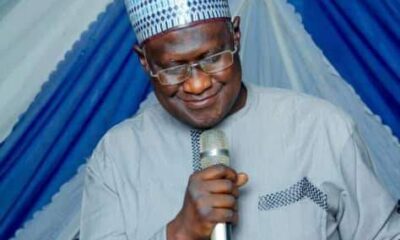
 Appointment11 months ago
Appointment11 months agoGombe State Indigene, Appointed New Vice Chancellor (ATBU)
-

 Politics2 years ago
Politics2 years agoFormer Gombe State APC Promoters Forum Chairman Attacked Following Political Commentary
-
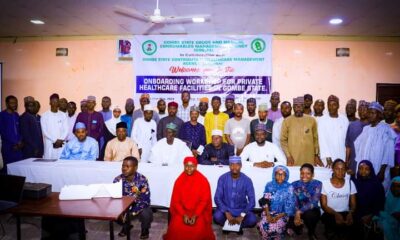
 Health1 year ago
Health1 year agoGombe State Organizes Onboarding Workshop for Private Healthcare Facilities
-
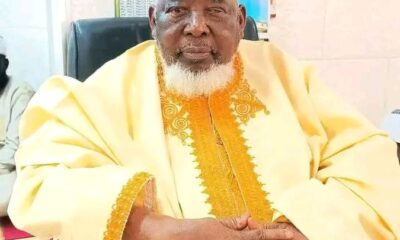
 Death6 months ago
Death6 months agoProminent Nigerian Islamic Scholar, Sheikh Sa’idu Hassan Jingir, Passes Away
-
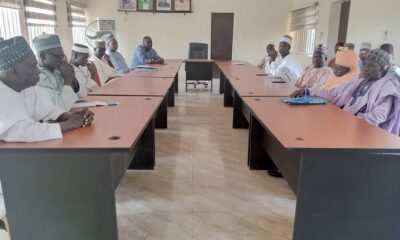
 Water1 year ago
Water1 year agoGombe Government Mobilizes Stakeholders to Combat Illegal Water Connections
-
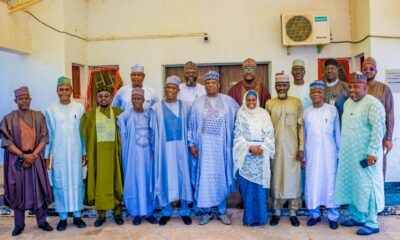
 Politics1 year ago
Politics1 year agoGombe State Inaugurates Human Capital Development Council
-
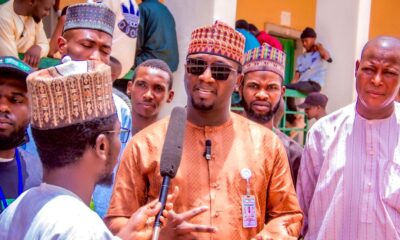
 Politics1 year ago
Politics1 year agoGombe State Launches Presidential Palliative Program (PPP) to Aid Small Businesses
